
The Tropical Charm of Cocody, Abidjan
Nestled along the Ébrié Lagoon, Cocody is one of Abidjan’s most prestigious and picturesque districts. Known for its lush greenery, vibrant culture, and affluent lifestyle, this neighborhood offers a diverse blend of modern amenities and traditional Ivorian charm. The streets are lined with elegant villas, embassies, and an array of high-end shops and restaurants, making it a magnet for both locals and tourists seeking a taste of luxury. Cocody is also home to some of Abidjan's most significant cultural institutions, including the University of Cocody, the National Library, and the Ivorian Museum of Contemporary Art. These landmarks not only provide a deep dive into the country’s rich heritage but also host various cultural events and exhibitions throughout the year. The district’s bustling markets, such as the Cocody Market, offer a vibrant shopping experience where visitors can find everything from fresh produce to traditional crafts. For those looking to relax and unwind, Cocody’s beautiful lagoon-side spots and parks provide perfect settings for leisurely strolls and picnics. The district's nightlife is equally enticing, with a range of chic bars, live music venues, and upscale clubs that come alive after sundown. Whether you're exploring its cultural treasures, indulging in gourmet dining, or simply soaking in the scenic beauty, Cocody promises an unforgettable experience for every traveler.
Local tips in Cocody
- Visit the Cocody Market early in the morning to avoid crowds and get the freshest produce.
- Wear comfortable shoes as the best way to explore Cocody is on foot, allowing you to fully appreciate its beauty.
- Check out the event schedules at the Ivorian Museum of Contemporary Art for unique cultural experiences.
- Take a sunset walk along the lagoon for stunning views and photo opportunities.
- Try local Ivorian dishes at restaurants in Cocody to get a true taste of the region’s cuisine.
Unmissable attractions to see
Parc National du Banco
Explore the serene beauty of Parc National du Banco, a lush urban park in Abidjan, rich in biodiversity and perfect for nature lovers.
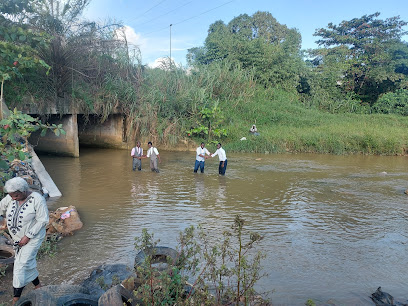
Paradisia Abidjan
Experience thrilling rides, captivating attractions, and unforgettable moments at Paradisia Abidjan, the ultimate amusement park in Ivory Coast.
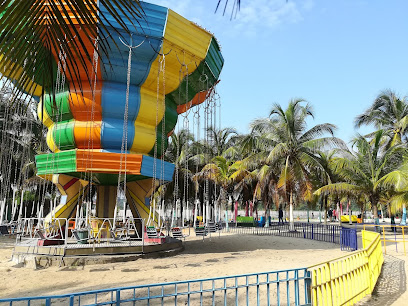
Parc Urbain Dominique Ouattara
Explore the serene beauty of Parc Urbain Dominique Ouattara, a peaceful urban park in Abidjan perfect for relaxation and outdoor activities.
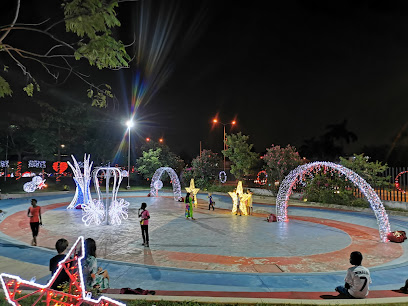
Maison de la Nature
Explore the lush landscapes and historical significance of Maison de la Nature in Abidjan, a tranquil escape into Côte d'Ivoire's natural beauty.
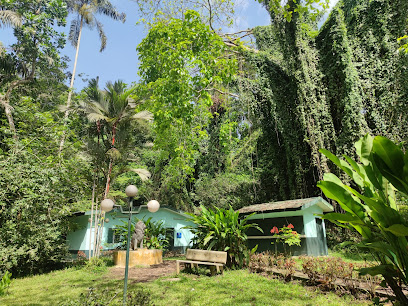
Parc Urbain Akouedo
Experience the tranquil charm of Parc Urbain Akouedo, Abidjan's serene park filled with lush landscapes, family-friendly activities, and local culture.
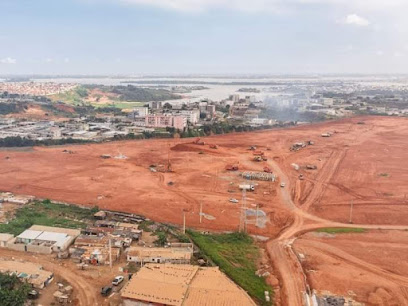
Akpany Tour
Explore the rich culture and stunning landscapes at Akpany Tour, a must-visit attraction in Abidjan, Côte d'Ivoire.
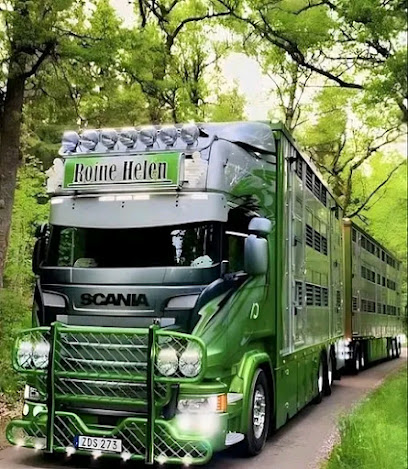
Essential places to dine
Bushman Café
Discover the vibrant flavors of Abidjan at Bushman Café, where local culture meets culinary excellence in a unique artistic setting.
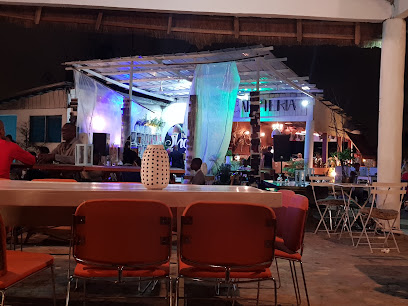
Maquis du Val
Experience authentic Ivorian cuisine at Maquis du Val in Abidjan - where local flavors meet vibrant culture.
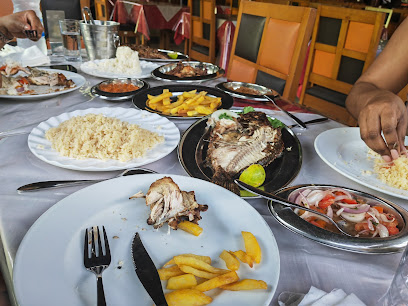
O'Good Food
Discover the flavors of Ivorian cuisine at O'Good Food in Cocody, Abidjan - where every meal is a celebration.
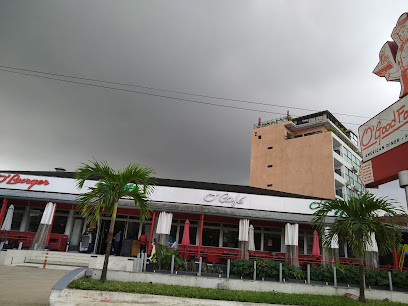
Restaurant Kajazoma
Discover authentic Ivorian cuisine at Restaurant Kajazoma in Abidjan’s Cocody district – a culinary delight awaits!
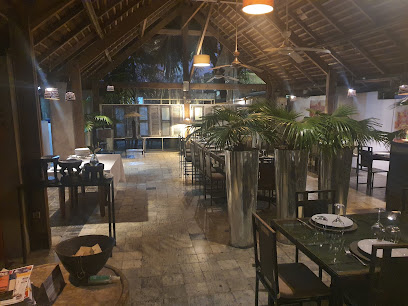
Restaurant Regina Margherita
Savor authentic Italian cuisine at Restaurant Regina Margherita in Abidjan—where every dish tells a story.
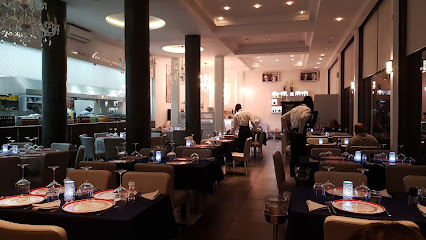
Restaurant Le LOF
Experience authentic African cuisine in a vibrant setting at Restaurant Le LOF in Abidjan.
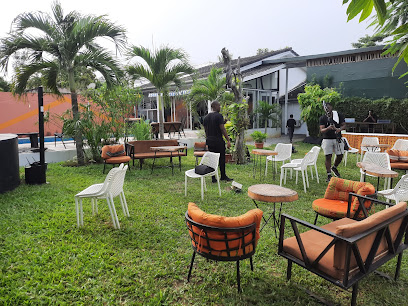
Resto le BAOBAB
Discover Resto le BAOBAB: A culinary haven in Abidjan blending Ivorian delights with Italian classics for an unforgettable dining experience.
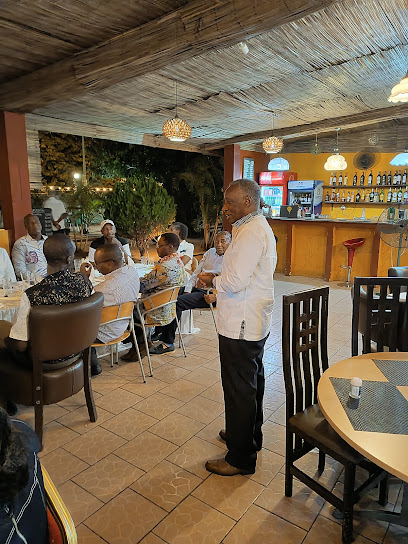
Restaurant Tarama Abidjan Cocody
Experience the flavors of Côte d'Ivoire at Restaurant Tarama - where local cuisine meets warm hospitality in Cocody.
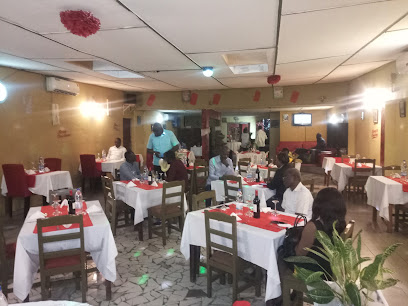
L'exotic Restaurant
Experience exquisite Haute French cuisine in Abidjan at L'exotic Restaurant – where every meal is a celebration of flavor and elegance.
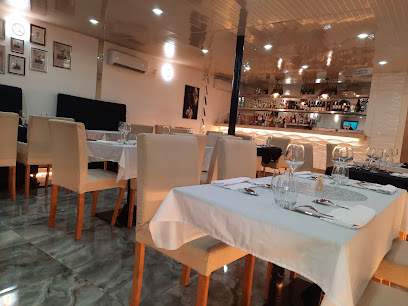
Le toit d’Abidjan
Experience exquisite Italian cuisine with breathtaking views at Le toit d’Abidjan in the heart of Abidjan.
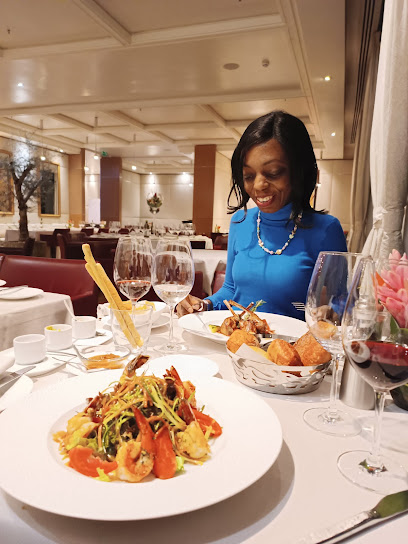
Markets, malls and hidden boutiques
Cap Sud
Discover the vibrant shopping experience at Cap Sud in Abidjan, offering diverse shops, delightful dining, and a lively atmosphere for tourists.
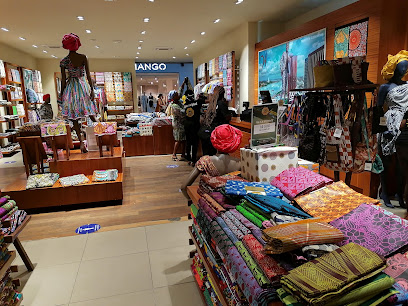
Sococe Mall
Explore Sococe Mall in Abidjan for a delightful shopping experience, local cuisine, and a taste of vibrant Ivorian culture.
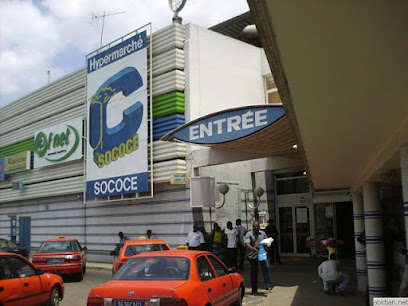
Abidjan Mall
Experience the best of shopping, dining, and entertainment at Abidjan Mall, the heart of Côte d'Ivoire's vibrant retail scene.
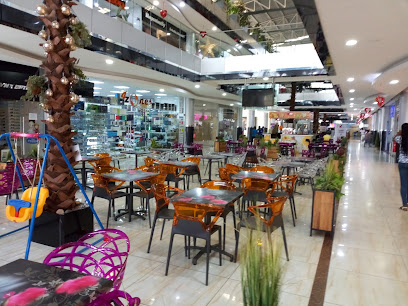
Chic Shop Riviera
Discover a vibrant shopping experience at Chic Shop Riviera in Abidjan, featuring diverse stores, delightful dining, and lively entertainment.
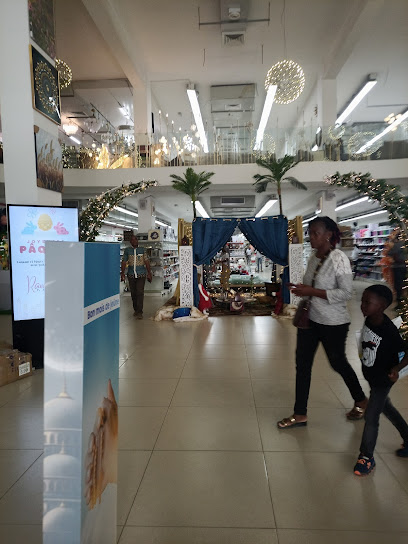
Future Store
Explore Abidjan's Future Store: A Boutique Offering Unique Fashion and Local Artistry in the Heart of Cocody.
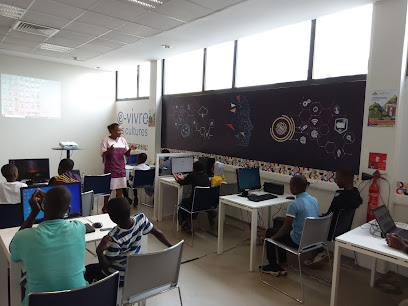
Abidjan Duty Free Shop
Experience luxury shopping at the Abidjan Duty Free Shop, where you can find exclusive products at unbeatable prices in the heart of Abidjan.
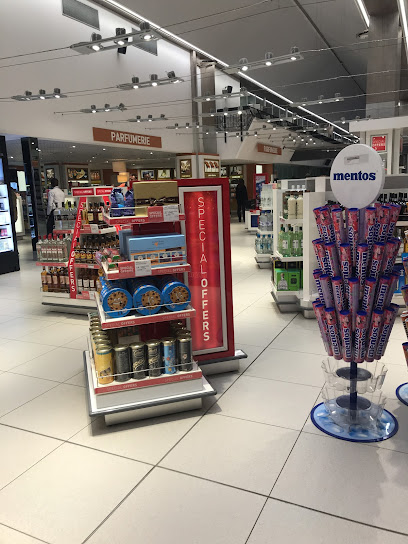
Paris Boutiques
Explore Paris Boutiques in Abidjan for a luxurious shopping experience featuring fashion, home goods, and unique local treasures.
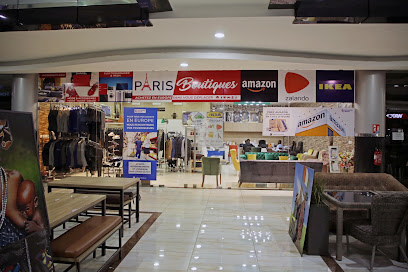
MALED'O STORE
Discover the essence of Ivorian fashion at Maled'O Store in Abidjan, where style meets local culture and creativity.
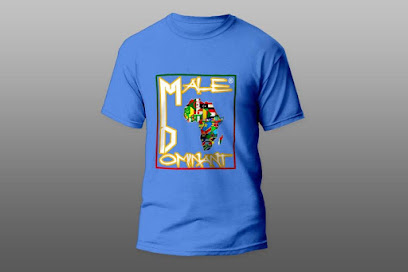
SHOPPING ABIDJAN
Discover the latest trends and unique fashion pieces at Shopping Abidjan, the premier clothing store in the heart of Ivory Coast.
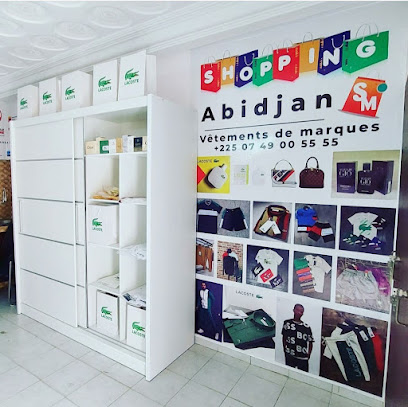
FLOR'ATOUTS Pick-up point
Explore FLOR'ATOUTS in Abidjan for unique Ivorian gifts, handcrafted souvenirs, and exceptional service in a vibrant atmosphere.
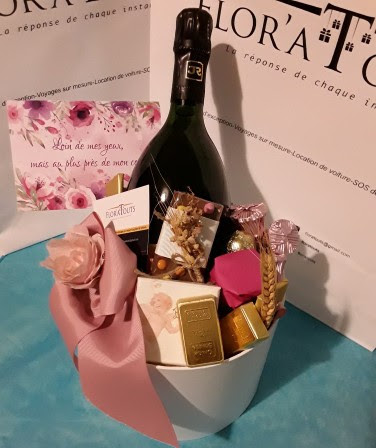
Essential bars & hidden hideouts
Pam's Abidjan
Experience the vibrant nightlife of Abidjan at Pam's, where locals and travelers come together over drinks and music in a lively setting.
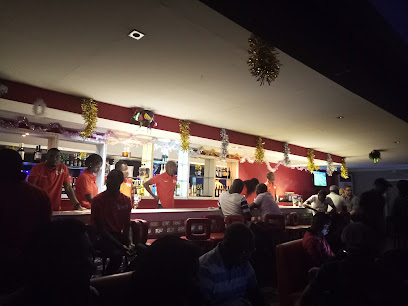
Prestige Lounge Bar
Discover the vibrant nightlife at Prestige Lounge Bar in Abidjan, where modern ambiance meets live music and exquisite drinks.
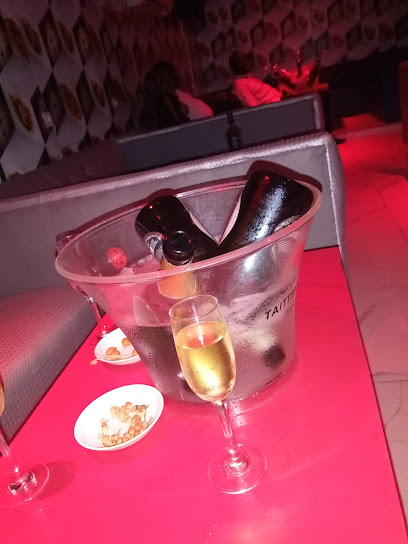
Cavally Lounge
Discover Abidjan's vibrant nightlife at Cavally Lounge, where exquisite cocktails and a lively atmosphere create unforgettable memories.
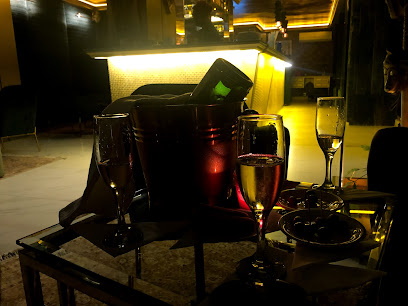
Swell Lounge
Experience the vibrant nightlife of Abidjan at Swell Lounge, a stylish venue for cocktails, light bites, and socializing in a chic atmosphere.
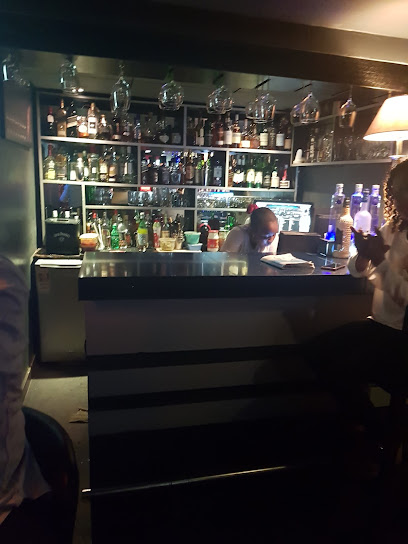
HAPPY LOUNGE
Discover Happy Lounge in Abidjan: a vibrant lounge offering exquisite drinks, local delicacies, and a relaxing atmosphere to unwind after exploring the city.
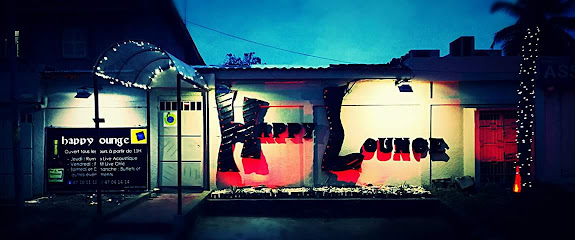
SELFIE BAR COCKTAIL
Experience Abidjan's nightlife at Selfie Bar Cocktail, where creativity meets flavor in a vibrant lounge atmosphere.
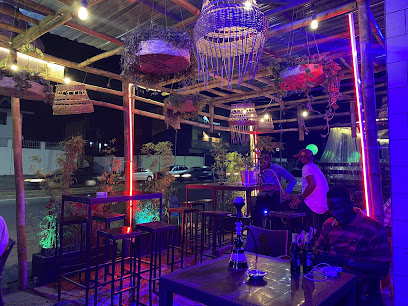
Jungle Bar
Experience the vibrant nightlife at Jungle Bar in Cocody, Abidjan, where delicious drinks and lively music create the perfect atmosphere for relaxation and fun.
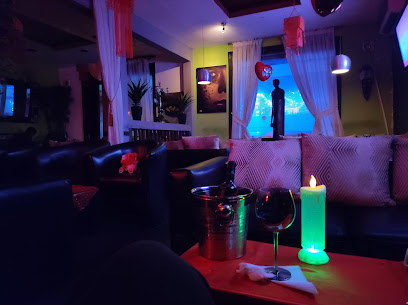
SECRET CLUB wood garden
Experience the vibrant nightlife of Abidjan at SECRET CLUB Wood Garden, a hidden cocktail bar offering lush surroundings and exquisite drinks.
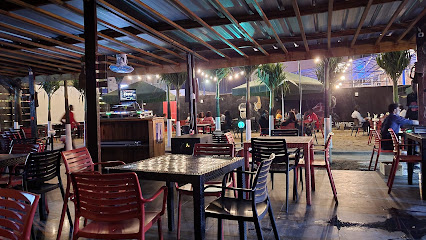
La Rue des Bars
Discover the vibrant nightlife of Abidjan at La Rue des Bars, a must-visit destination for lively entertainment and local culture.
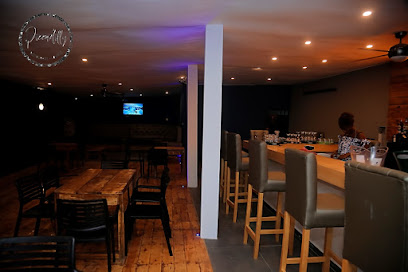
FUNKY HOUSE
Discover the vibrant nightlife of Abidjan at Funky House, a lively lounge offering eclectic music and a unique local experience.

Local Phrases
-
- HelloBoujour
[Boo-zhoor] - GoodbyeAu revoir
[Oh reh-vwahr] - YesOui
[Wee] - NoNon
[Non] - Please/You're welcomeS'il vous plaît
[Seel voo pleh] - Thank youMerci
[Mehr-see] - Excuse me/SorryPardon
[Pahr-dohn] - How are you?Comment ça va?
[Koh-mohn sah vah?] - Fine. And you?Bien. Et toi?
[Byen. Ay twah?] - Do you speak English?Parlez-vous anglais?
[Pahr-leh voo ahn-glay?] - I don't understandJe ne comprends pas
[Zhuh nuh kohm-prahnd pah]
- HelloBoujour
-
- I'd like to see the menu, pleaseJe voudrais voir le menu, s'il vous plaît
[Zhuh voo-dreh vwahr luh meh-nyoo, seel voo pleh] - I don't eat meatJe ne mange pas de viande
[Zhuh nuh mahnj pah duh vyand] - Cheers!Santé!
[Sahn-tay] - I would like to pay, pleaseJe voudrais payer, s'il vous plaît
[Zhuh voo-dreh pay-eh, seel voo pleh]
- I'd like to see the menu, pleaseJe voudrais voir le menu, s'il vous plaît
-
- Help!Au secours!
[Oh seh-coor] - Go away!Allez-vous en!
[Ah-lay vooz ahn] - Call the Police!Appelez la police!
[Ah-puh-lay lah poh-lees] - Call a doctor!Appelez un médecin!
[Ah-puh-lay uh may-deh-sahn] - I'm lostJe suis perdu
[Zhuh swee pair-doo] - I'm illJe suis malade
[Zhuh swee mah-lahd]
- Help!Au secours!
-
- I'd like to buy...Je voudrais acheter...
[Zhuh voo-dreh ah-shet-eh...] - I'm just lookingJe regarde juste
[Zhuh ruh-gahrd juhst] - How much is it?Combien ça coûte?
[Kohm-byen sah koot?] - That's too expensiveC'est trop cher
[Say troh shair] - Can you lower the price?Pouvez-vous baisser le prix?
[Poo-veh voo beh-say luh pree?]
- I'd like to buy...Je voudrais acheter...
-
- What time is it?Quelle heure est-il?
[Kell ur eh-teel?] - It's one o'clockIl est une heure
[Eel eh oon ur] - Half past (10)Dix et demie
[Dee ay deh-mee] - MorningMatin
[Mah-tahn] - AfternoonAprès-midi
[Ah-preh mee-dee] - EveningSoir
[Swahr] - YesterdayHier
[Yehr] - TodayAujourd'hui
[Oh-zhoor-dwee] - TomorrowDemain
[Duh-mahn] - 1Un
[Uh] - 2Deux
[Duh] - 3Trois
[Twa] - 4Quatre
[Kat] - 5Cinq
[Sank] - 6Six
[Sees] - 7Sept
[Set] - 8Huit
[Wheat] - 9Neuf
[Nuhf] - 10Dix
[Dee]
- What time is it?Quelle heure est-il?
-
- Where's a/the...?Où est...
[Oo eh...] - What's the address?Quelle est l'adresse?
[Kell eh la-dress] - Can you show me (on the map)?Pouvez-vous me montrer (sur la carte)?
[Poo-veh voo muh mohn-tray (soor lah kart)?] - When's the next (bus)?Quand est le prochain (bus)?
[Kahnd eh luh proh-shang (boos)?] - A ticket (to ....)Un billet (pour ...)
[Uh bee-yay (poor ...)]
- Where's a/the...?Où est...
History of Cocody
-
Cocody, originally a village inhabited by the Akan people, began to develop significantly during the French colonial period in the late 19th century. The French established administrative centers and residential areas, transforming Cocody into a prominent district of Abidjan, emphasizing its strategic location along the lagoon.
-
Following Côte d'Ivoire's independence in 1960, Cocody became a symbol of national identity and pride. The area is home to several government buildings and embassies, reflecting its status as a political hub. The construction of the Presidential Palace, located in Cocody, further solidified its importance in the nation's governance.
-
Over the decades, Cocody has evolved into a cultural and educational center, housing the University of Cocody, one of the largest and most prestigious universities in the country. This institution has attracted students from across West Africa, fostering a vibrant academic environment and contributing to the cultural richness of the neighborhood.
-
The late 20th century saw significant urbanization in Cocody, with the development of upscale residential areas and commercial establishments. This transformation has drawn a diverse population, blending traditional Ivorian culture with modern influences, making Cocody a dynamic and cosmopolitan neighborhood.
-
Cocody hosts various cultural events and festivals that celebrate Ivorian heritage, including music, dance, and art exhibitions. These gatherings highlight the neighborhood's role as a cultural epicenter and promote community engagement, showcasing the rich traditions of the Côte d'Ivoire.
Cocody Essentials
-
Cocody is easily accessible from various neighborhoods in Abidjan. The neighborhood is located approximately 7 kilometers east of the city center (Plateau). You can reach Cocody by taxi, which is the most convenient option. Local buses also operate routes from Plateau and other areas, including Yopougon and Treichville, with stops in Cocody. The journey by taxi typically takes around 15-30 minutes, depending on traffic.
-
Cocody is a well-connected neighborhood, making it easy to get around. Taxis and ride-hailing services like Yango are readily available. Local buses (known as 'gbaka') are a popular and affordable way to travel; they operate frequently and connect you to various parts of Cocody. For a more leisurely experience, consider renting a bicycle to explore the area at your own pace. Walking is also a viable option for short distances.
-
Cocody is generally considered safe for tourists, but it's essential to stay cautious. Areas around the university and some markets can experience petty crime, so avoid displaying valuable items and remain vigilant in crowded spaces. It is advisable to avoid walking alone at night, especially in less populated areas. Always opt for reputable transportation services to ensure your safety.
-
In case of an emergency, dial 112 for police assistance or 221 for medical emergencies. The local hospitals, such as Polyclinique de Cocody, can provide immediate care. It's advisable to have travel insurance that covers medical emergencies. For minor health issues, pharmacies are available throughout Cocody where you can find over-the-counter medications.
-
Fashion: Do dress modestly, especially in religious or formal settings. Avoid overly casual or revealing clothing. Religion: Do respect local customs and traditions by being mindful of dress codes when visiting churches. Public Transport: Do give up your seat for elderly passengers. Don't engage in loud conversations or eat on public transport. Greetings: Do greet people with a friendly handshake and a smile. Eating & Drinking: Do try local dishes and share meals with locals. Don't refuse food offerings, as it may be considered disrespectful.
-
To experience Cocody like a local, visit the vibrant markets such as Marché de Cocody for fresh produce and local crafts. Engage with residents, as they are often welcoming and can share insights about the area. Don't miss the beautiful Parc de la Mé, perfect for a relaxing afternoon. Additionally, explore the cultural sites along the Boulevard de l'Université, which reflect the architectural heritage of the neighborhood.
Nearby Cities to Cocody
-
Things To Do in Yamoussoukro
-
Things To Do in Sassandra
-
Things To Do in Takoradi
-
Things To Do in Sekondi-Takoradi
-
Things To Do in Sunyani
-
Things To Do in Kumasi
-
Things To Do in Cape Coast
-
Things To Do in San-Pédro
-
Things To Do in Daloa
-
Things To Do in Koforidua
-
Things To Do in Accra
-
Things To Do in Ho
-
Things To Do in Kpalimé
-
Things To Do in Wa
-
Things To Do in Tamale



